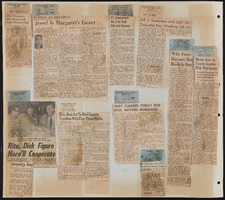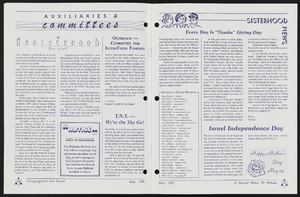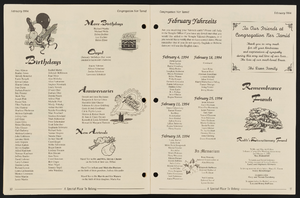Search the Special Collections and Archives Portal
Search Results
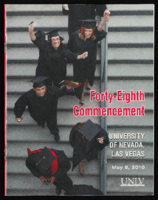
University of Nevada, Las Vegas (UNLV) 48th commencement program
Date
Archival Collection
Description
Commencement program from University of Nevada, Las Vegas Commencement Programs and Graduation Lists (UA-00115).
Text
Duy Ngyuen (Asian Community Development Council) oral history interview conducted by Magdalena Martinez: transcript
Date
Archival Collection
Description
From the Lincy Institute "Perspectives from the COVID-19 Pandemic" Oral History Project (MS-01178) -- Community organization interviews file.
Text
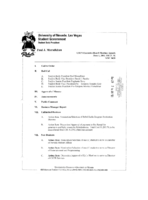
Meeting minutes for Consolidated Student Senate, University of Nevada, Las Vegas, June 01, 2001
Date
Archival Collection
Description
Text
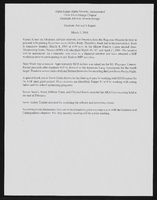
Alpha Kappa Alpha Sorority, Theta Theta Omega Chapter graduate advisor's reports
Date
Archival Collection
Description
From the Alpha Kappa Alpha Sorority, Incorporated, Theta Theta Omega Chapter Records (MS-01014) -- Chapter records file.
Text
MacDonald Ranch Development Records
Identifier
Abstract
The MacDonald Ranch Development Records (1972-2010) contain correspondence, maps, land assessments and investigations, master plans, and architectural, civil engineering, and landscape drawings primarily detailing the community development process of MacDonald Ranch, a master-planned community in southwest Henderson, Nevada.
Archival Collection

